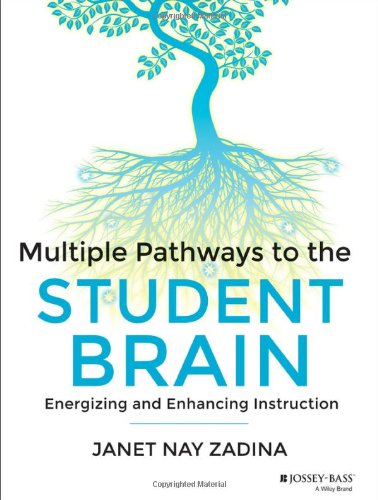

Most ebook files are in PDF format, so you can easily read them using various software such as Foxit Reader or directly on the Google Chrome browser.
Some ebook files are released by publishers in other formats such as .awz, .mobi, .epub, .fb2, etc. You may need to install specific software to read these formats on mobile/PC, such as Calibre.
Please read the tutorial at this link: https://ebookbell.com/faq
We offer FREE conversion to the popular formats you request; however, this may take some time. Therefore, right after payment, please email us, and we will try to provide the service as quickly as possible.
For some exceptional file formats or broken links (if any), please refrain from opening any disputes. Instead, email us first, and we will try to assist within a maximum of 6 hours.
EbookBell Team

5.0
70 reviewsFrom an award-winning neuroscience researcher with twenty years of teaching experience, Multiple Pathways to the Student Brain uses educator-friendly language to explain how the brain learns. Steering clear of “neuro-myths,” Dr. Janet Zadina discusses multiple brain pathways for learning and provides practical advice for creating a brain-compatible classroom.
While there are an abundance of books and workshops that aim to integrate education and brain science, educators are seldom given concrete, actionable advice that makes a difference in the classroom. Multiple Pathways to the Student Brain bridges that divide by providing examples of strategies for day-to-day instruction aligned with the latest brain science . The book explains not only the sensory/motor pathways that are familiar to most educators (visual, auditory, and kinesthetic), it also explores the lesser known pathways--reward/survival, language, social, emotional, frontal lobe, and memory/attention--and how they can be tapped to energize and enhance instruction.
Educators are forever searching for new and improved ways to convey information and inspire curiosity, and research suggests that exploiting different pathways may have a major effect on learning. Multiple Pathways to the Student Brain allows readers to see brain science through the eyes of a teacher—and teaching through the eyes of a brain scientist.